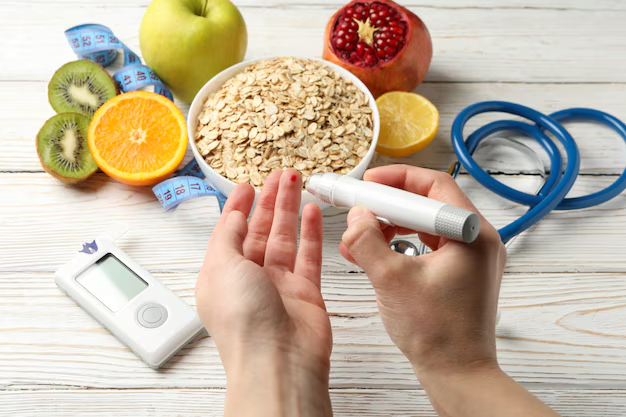Your Guide to Can Diabetes Be Cured
What You Get:
Free Guide
Free, helpful information about Diabetes FAQ and related Can Diabetes Be Cured topics.
Helpful Information
Get clear and easy-to-understand details about Can Diabetes Be Cured topics and resources.
Personalized Offers
Answer a few optional questions to receive offers or information related to Diabetes FAQ. The survey is optional and not required to access your free guide.
Is a Diabetes Cure on the Horizon? Everything You Need to Know
Diabetes, a chronic condition characterized by high blood sugar levels, affects millions globally. Given its widespread impact, a frequently asked question is: Can diabetes be cured? While the short answer is no, the conversation doesn't end there. Understanding the nuances of treatment and management options empowers those affected to navigate living with diabetes more effectively.
Understanding Diabetes
Type 1 Diabetes is an autoimmune condition where the pancreas produces little to no insulin. Type 2 Diabetes, more common, is primarily linked to lifestyle factors and happens when the body becomes resistant to insulin or when the pancreas fails to produce enough insulin.
While a cure is not available as of now, significant advancements in medicine have highlighted ways to manage and, in some cases, achieve remission, especially in Type 2 diabetes. Lifestyle interventions like a healthy diet and regular exercise have been shown to improve insulin sensitivity and lower blood sugar levels.
The Hope of Diabetes Remission
For Type 2 Diabetes, some patients may experience remission—a state where blood sugar levels are returned to normal values without the need for medication. This is more common in early-onset cases and is primarily achieved through significant lifestyle changes. Weight loss, often through a combination of dietary changes and increased physical activity, plays a crucial role in remission.
Type 1 Diabetes remission remains elusive, but advancements in research, such as immunotherapy and regenerative medicine, offer hope for potential breakthroughs in the future.
Financial Help for Diabetes Management
Managing diabetes can be costly, from medications to regular doctor visits and lifestyle modifications. Fortunately, several financial assistance options are available:
Government Aid Programs
- Medicare and Medicaid: These programs often cover diabetes management equipment and supplies.
- Supplemental Nutrition Assistance Program (SNAP): Provides financial assistance for purchasing healthy food.
Financial Assistance Options
- Pharmaceutical Assistance Programs: Many pharmaceutical companies offer assistance programs for people who cannot afford their medications.
- Non-profit Organizations: Some non-profits provide financial aid or free supplies to those in need.
Debt Relief and Credit Solutions
- Medical Debt Reduction: Some organizations specialize in assisting individuals with medical bill negotiations.
- Credit Counseling Services: Help manage debt and establish payment plans tailored to your healthcare needs.
Turning Health Knowledge Into Action
Understanding the current landscape of diabetes treatment is crucial. While a cure remains out of reach, effective management strategies can dramatically improve quality of life. Coupled with financial assistance, managing diabetes is more accessible than ever.
Below is a quick guide to available resources:
- 💊 Pharmaceutical Assistance: Check with medication manufacturers.
- 🏥 Government Programs: Explore Medicare, Medicaid, and SNAP for services.
- 💸 Debt Solutions: Look into medical debt negotiators.
- 📚 Educational Grants: Some institutions provide education on diabetes management.
With the right tools and support, living with diabetes becomes a manageable part of life, allowing for a focus on wellness, stability, and future possibilities.
What You Get:
Free Diabetes FAQ Guide
Free, helpful information about Can Diabetes Be Cured and related resources.

Helpful Information
Get clear, easy-to-understand details about Can Diabetes Be Cured topics.

Optional Personalized Offers
Answer a few optional questions to see offers or information related to Diabetes FAQ. Participation is not required to get your free guide.


